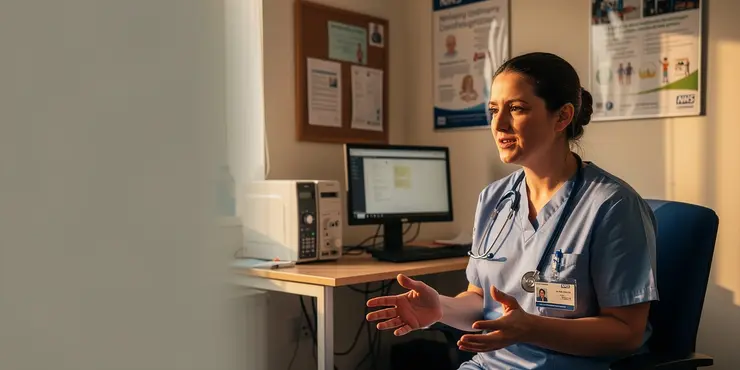
Find Help
More Items From Ergsy search
-
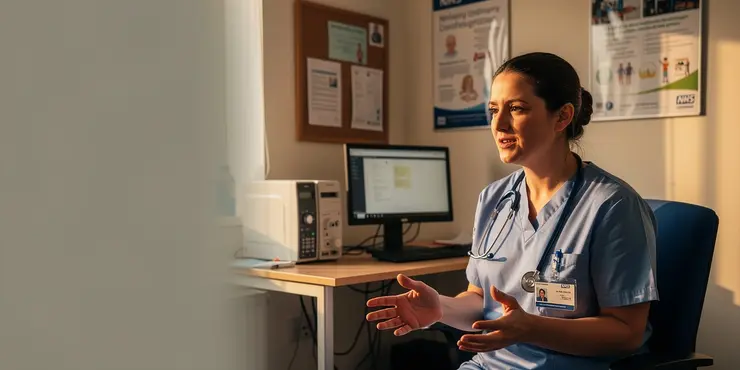
How is Rubella diagnosed?
Relevance: 100%
-
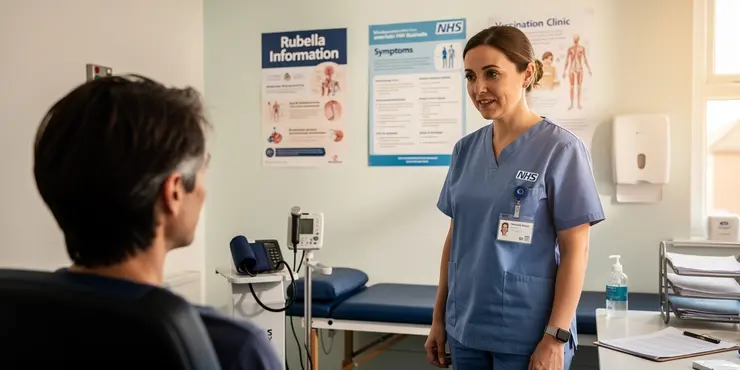
What are the symptoms of Rubella?
Relevance: 93%
-
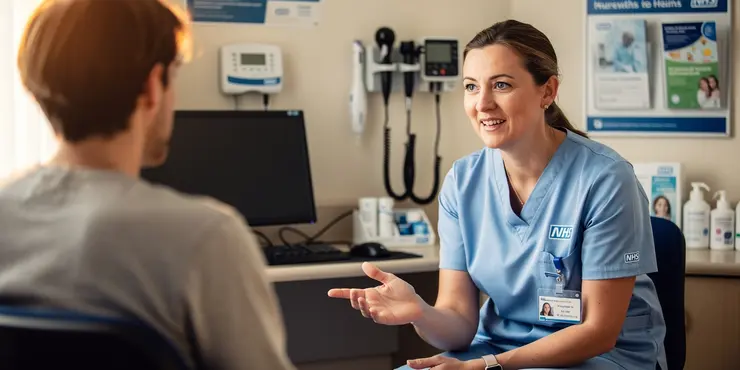
What is Rubella?
Relevance: 92%
-
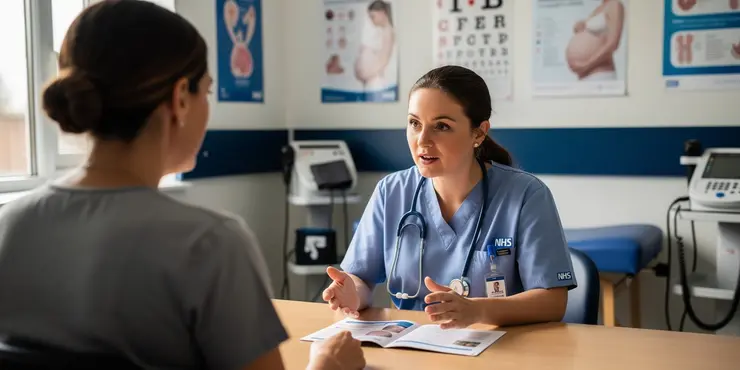
What is congenital rubella syndrome?
Relevance: 87%
-
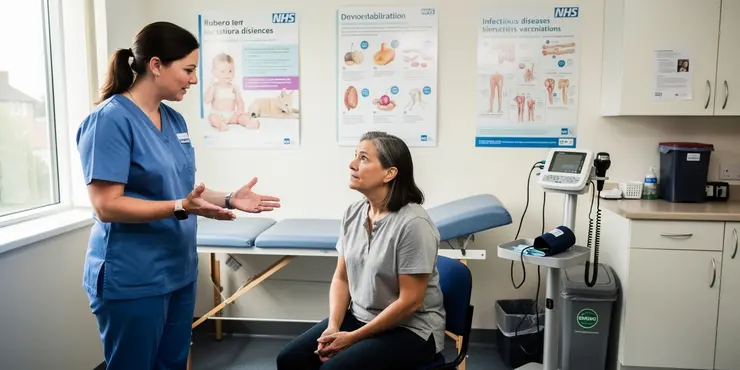
How serious is Rubella?
Relevance: 85%
-
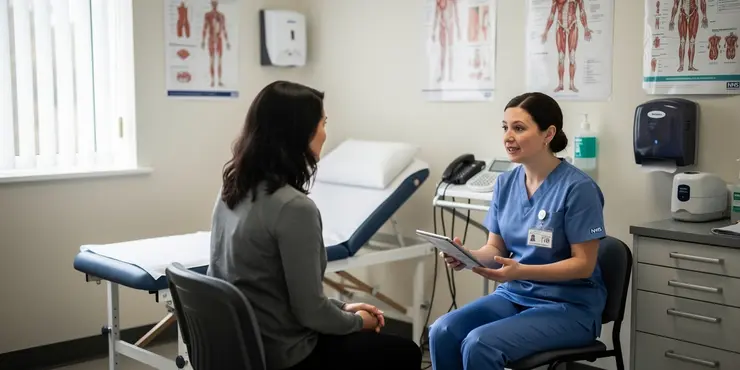
How is Rubella transmitted?
Relevance: 85%
-

Is Rubella the same as measles?
Relevance: 85%
-
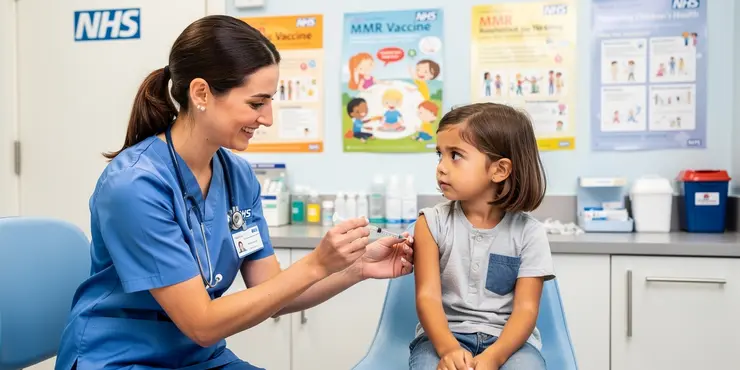
Can Rubella be prevented?
Relevance: 83%
-
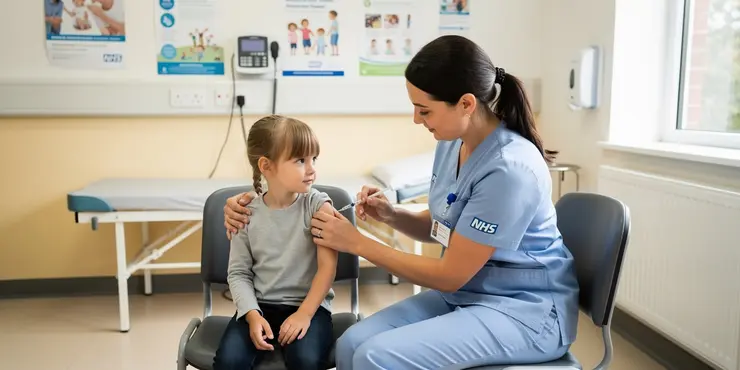
Who should receive the Rubella vaccine?
Relevance: 78%
-
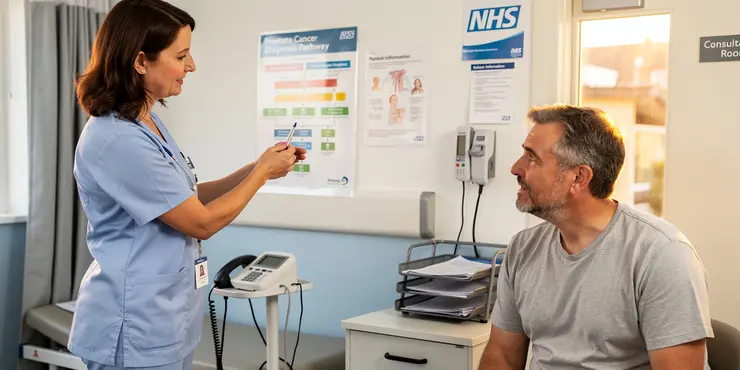
Prostate cancer diagnosis and tests
Relevance: 53%
-
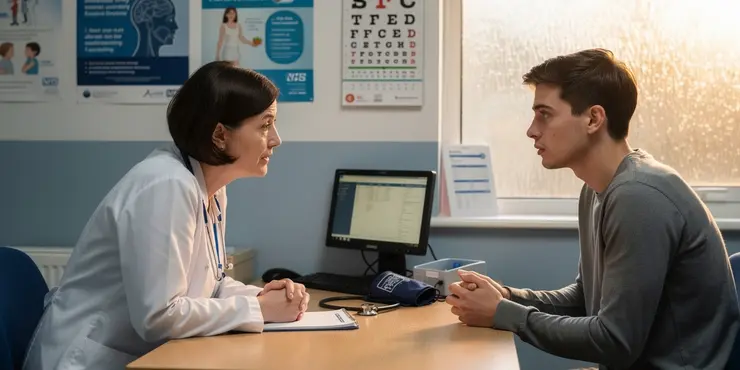
BSL - Diagnosis of panic disorder
Relevance: 52%
-
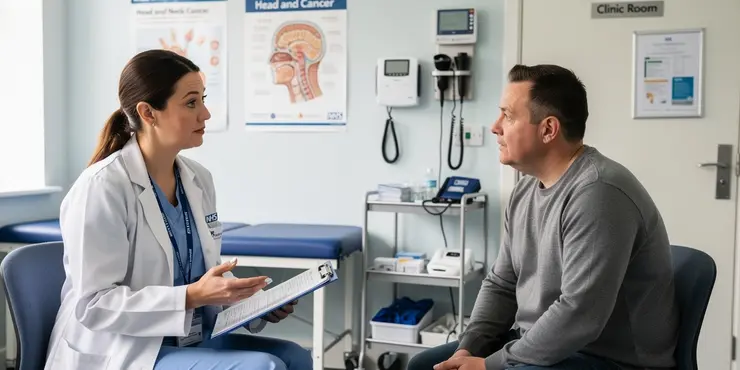
Head and Neck Cancer Diagnosis
Relevance: 52%
-
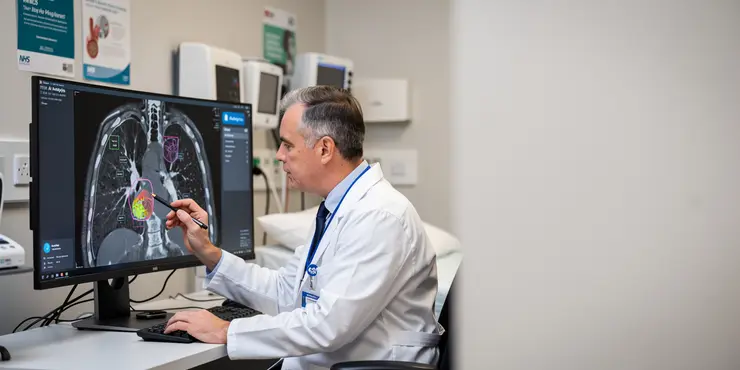
Are AI systems used alone in lung cancer diagnosis or alongside human radiologists?
Relevance: 50%
-
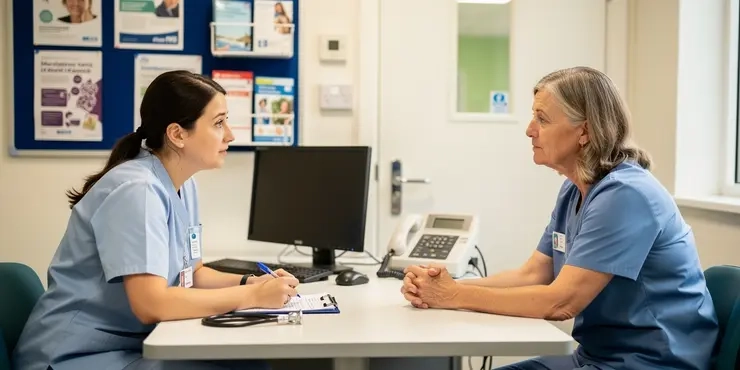
Attention deficit hyperactivity disorder (ADHD) - Diagnosis
Relevance: 48%
-

BSL - Diagnosis of obsessive compulsive disorder (OCD)
Relevance: 47%
-
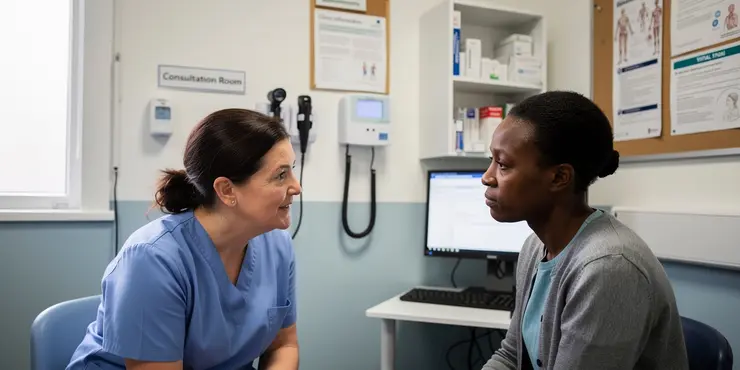
What is the life expectancy after a motor neurone disease diagnosis?
Relevance: 42%
-
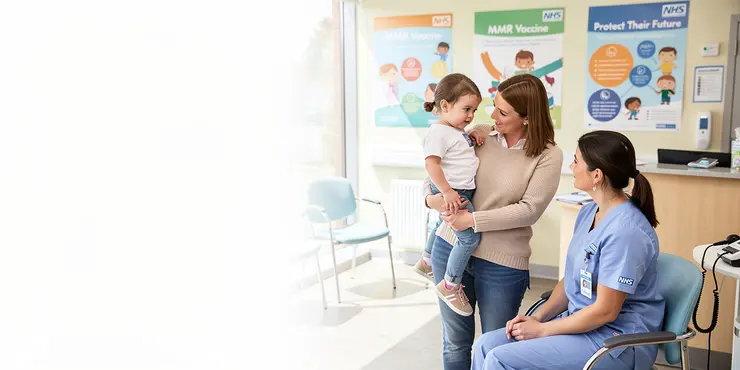
What is the MMR vaccine?
Relevance: 33%
-
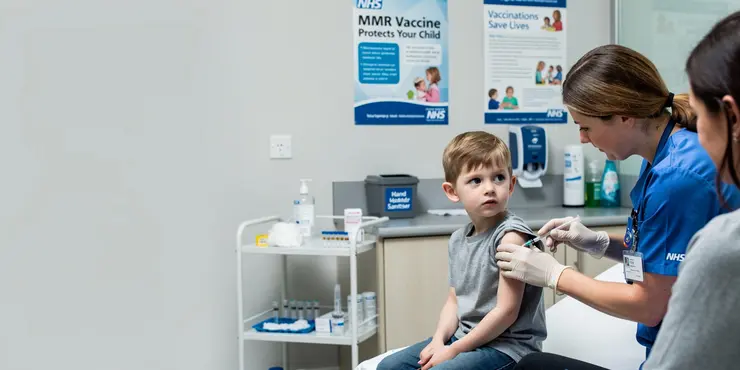
How effective is the MMR vaccine?
Relevance: 32%
-
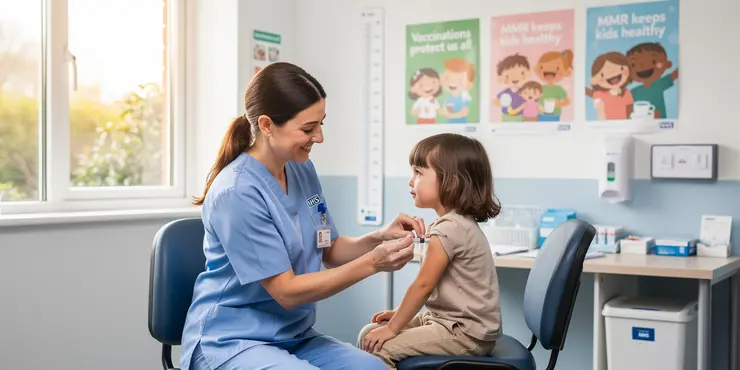
How effective is the MMR vaccine?
Relevance: 30%
-
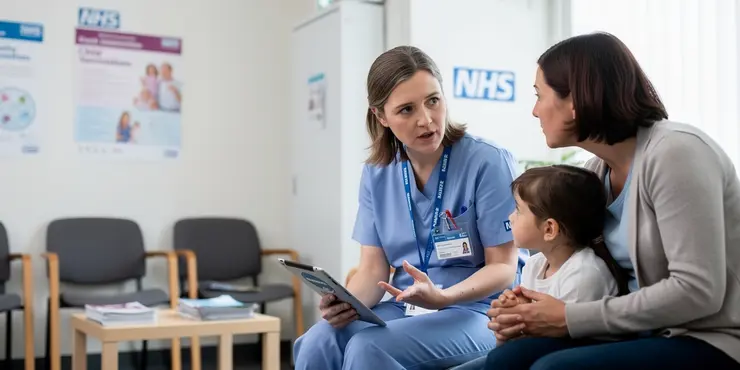
Who should receive the MMR vaccine?
Relevance: 27%
-
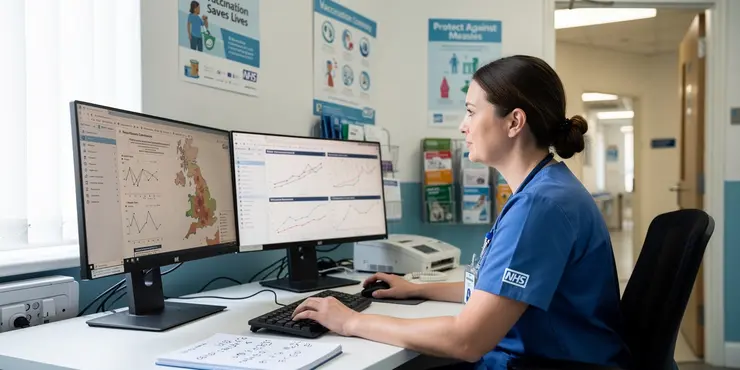
How does the UK monitor measles outbreaks?
Relevance: 23%
-
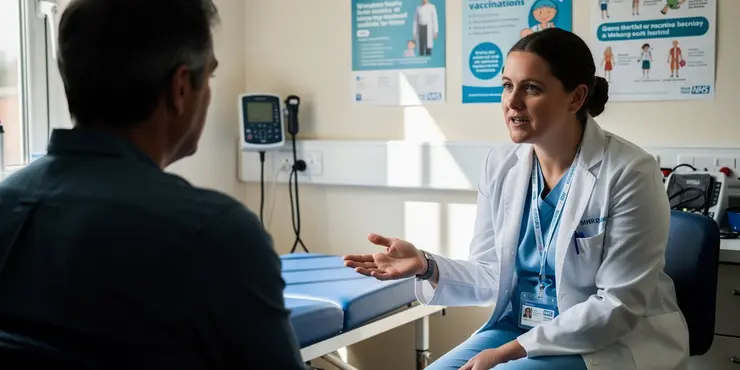
Can adults receive the MMR vaccine?
Relevance: 21%
-
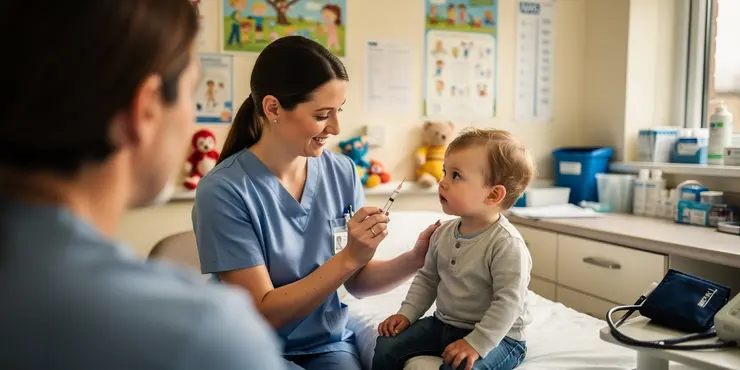
At what age is the MMR vaccine given in the UK?
Relevance: 20%
-
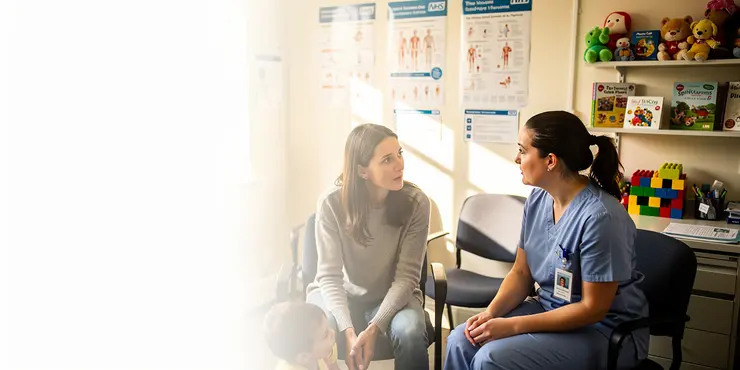
How is autism diagnosed?
Relevance: 20%
-
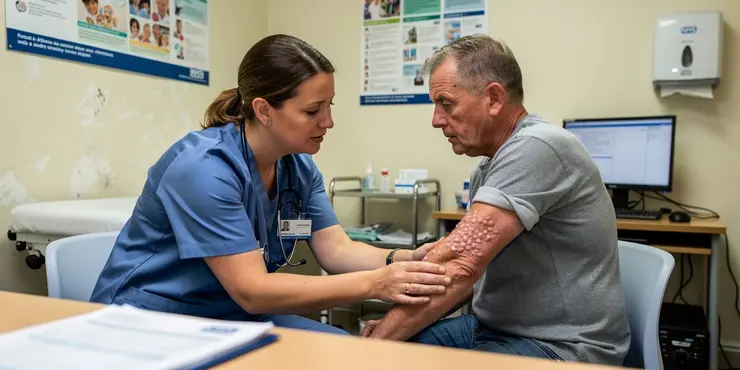
How is shingles diagnosed?
Relevance: 20%
-
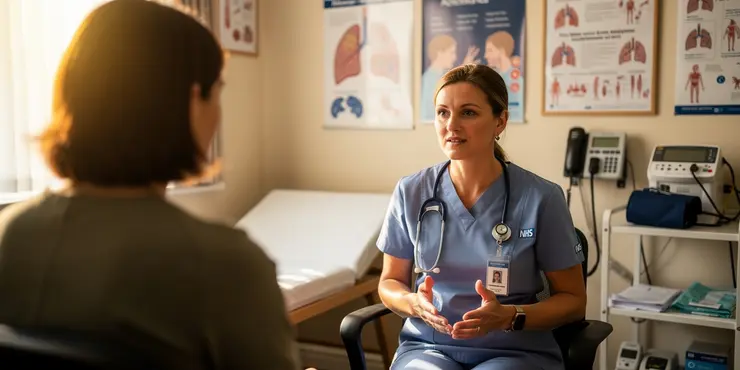
How is asthma diagnosed?
Relevance: 20%
-
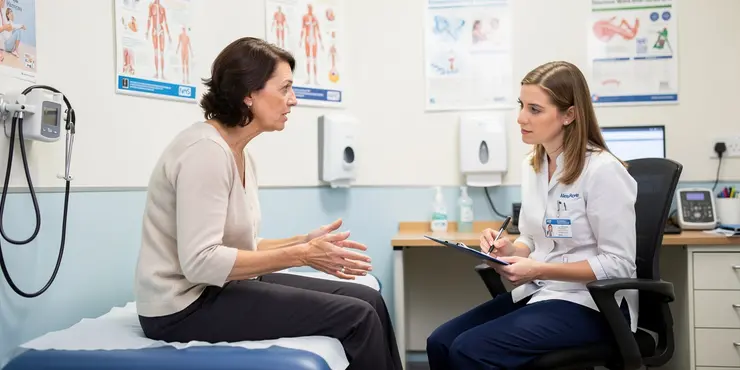
How is scabies diagnosed?
Relevance: 20%
-
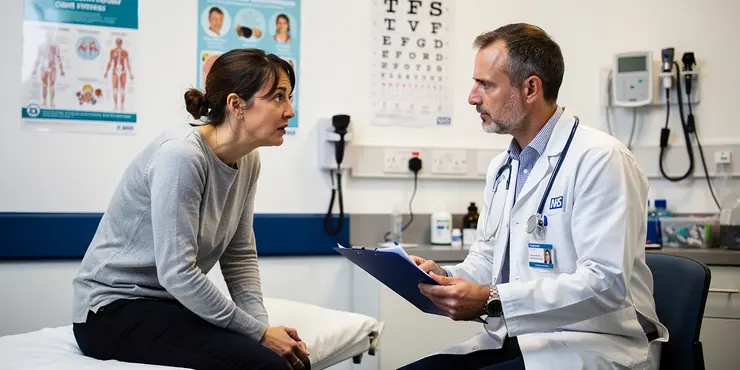
How is flesh-eating disease diagnosed?
Relevance: 20%
-
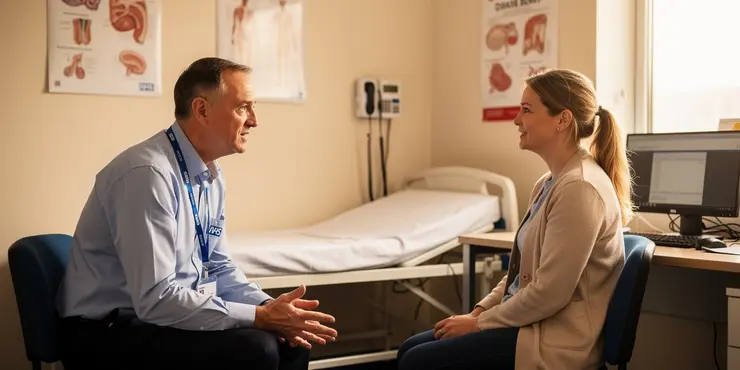
How is motor neurone disease diagnosed?
Relevance: 20%
-
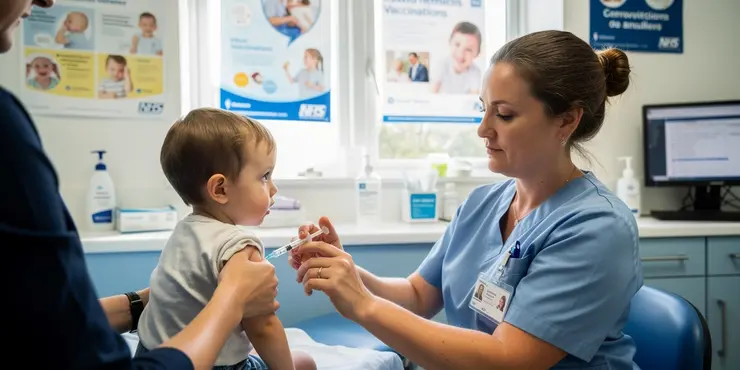
At what age should children receive the MMR vaccine?
Relevance: 19%
-
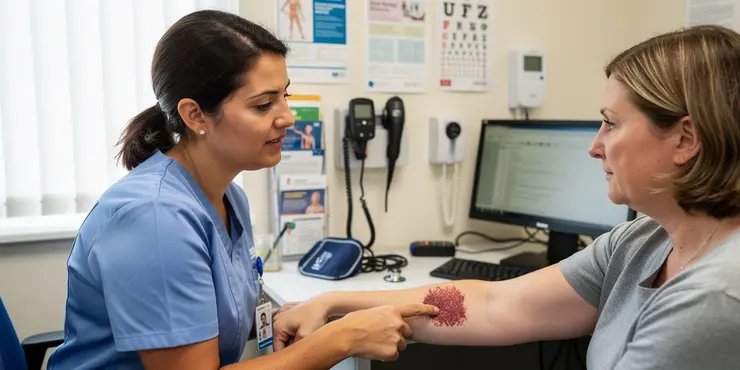
How is psoriasis diagnosed?
Relevance: 19%
-
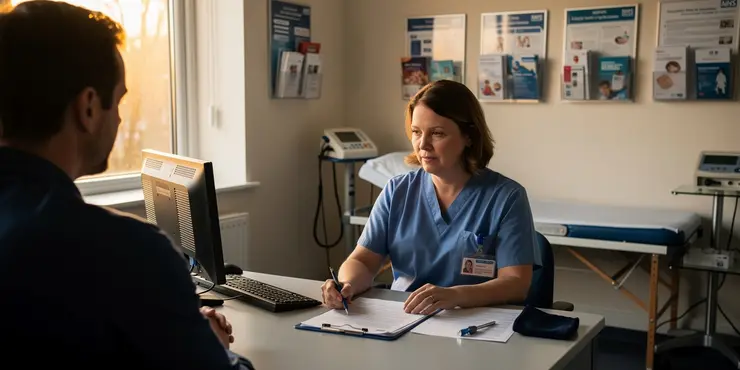
How is Huntington's disease diagnosed?
Relevance: 19%
-
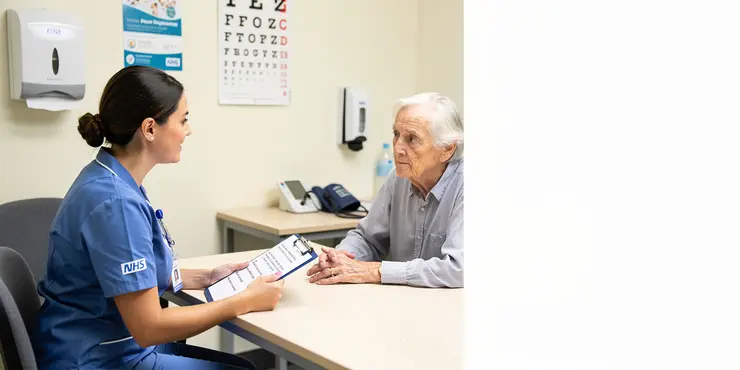
How is dementia diagnosed?
Relevance: 19%
-
How are eating disorders diagnosed?
Relevance: 19%
-
How is health-related anxiety diagnosed?
Relevance: 19%
-
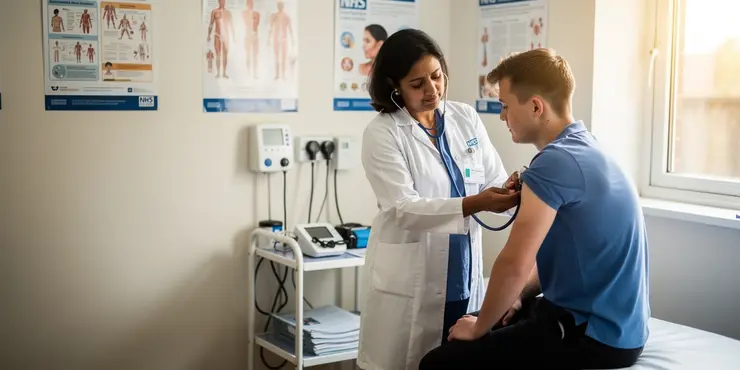
How is Chikungunya virus infection diagnosed?
Relevance: 19%
-
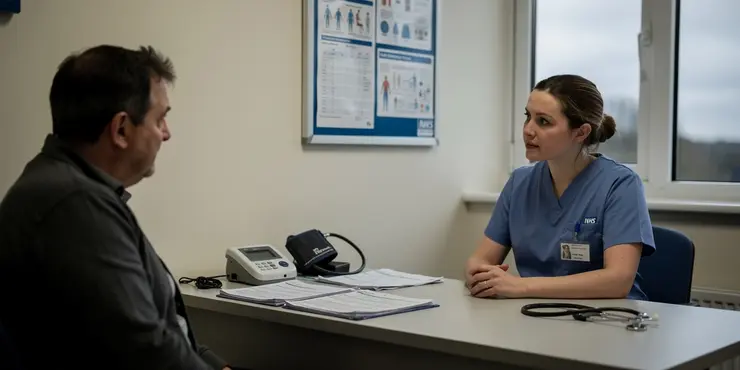
How is SAD diagnosed?
Relevance: 19%
-
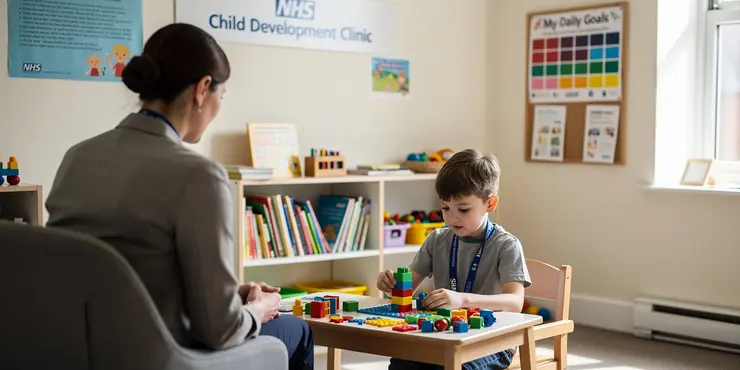
How is ADHD diagnosed?
Relevance: 19%
-
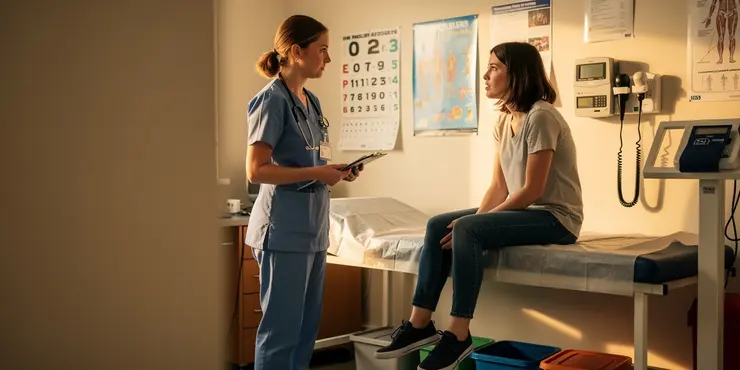
How is appendicitis diagnosed?
Relevance: 18%
-
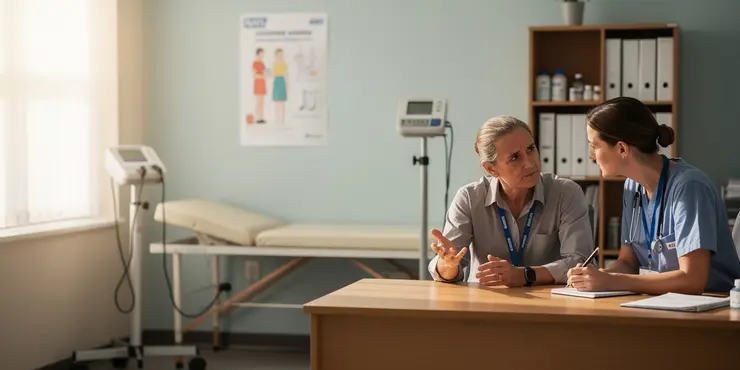
How is Alzheimer's disease diagnosed?
Relevance: 18%
Understanding Rubella Diagnosis
Rubella, also known as German measles, is a contagious viral infection best known by its distinctive red rash. While the condition is generally mild in children, it can have serious implications for pregnant women and their unborn babies. Prompt and accurate diagnosis is essential to managing outbreaks and protecting public health.
Initial Assessment and Symptoms
To diagnose rubella, healthcare providers typically begin with an assessment of symptoms and potential exposure history. Common symptoms of rubella include a red rash that starts on the face and spreads to the rest of the body, mild fever, swollen lymph nodes, and joint pain, especially in adults. Although these symptoms may point towards rubella, they are not exclusive to the disease, underscoring the need for further testing.
Clinical History and Vaccination Records
A thorough clinical history is a vital part of the diagnostic process. Doctors will often inquire about the patient's vaccination history, as those who have been vaccinated are far less likely to contract rubella. The MMR vaccine, which protects against measles, mumps, and rubella, is typically given to children in the UK, with the first dose administered around one year of age and a second dose before starting school.
Laboratory Testing
Definitive diagnosis of rubella is achieved through laboratory testing. The most common tests used to diagnose rubella are serological tests that detect rubella-specific antibodies. Blood samples are taken to measure the presence of Immunoglobulin M (IgM) and Immunoglobulin G (IgG) antibodies. The presence of IgM antibodies indicates a recent rubella infection, while IgG indicates past infection or immunity through vaccination.
In cases involving pregnant women, more detailed testing may be necessary to determine the risk to the unborn child. Amniocentesis or chorionic villus sampling might be employed to check for rubella virus presence in the amniotic fluid, though these procedures carry their own risks and are used judiciously.
Notification and Public Health Involvement
In the UK, rubella is a notifiable disease, meaning that confirmed cases must be reported to local health authorities. This allows public health teams to investigate and manage any potential outbreaks. Contact tracing may be conducted to identify and inform individuals who may have been exposed to the virus.
Conclusion
Efficient rubella diagnosis combines clinical evaluation with robust laboratory testing. It is crucial for controlling the spread of the infection and mitigating complications, particularly in pregnant women. With widespread vaccination, rubella cases in the UK are rare, but vigilance remains key to maintaining public health safety.
Understanding Rubella Diagnosis
Rubella is also called German measles. It is a virus that spreads easily and causes a red rash. It's usually not serious for kids, but it can be dangerous for pregnant women and their babies. It is important to find out if someone has rubella quickly. This helps keep people safe and healthy.
Initial Assessment and Symptoms
Doctors look at symptoms and if the person might have been near someone with rubella. Common signs are a red rash starting on the face, mild fever, swollen neck (lymph nodes), and sore joints (especially for grown-ups). These signs might mean rubella, but other things can cause them too. This is why tests are important.
Clinical History and Vaccination Records
Doctors also ask about the person’s medical history. They check if the person got the MMR vaccine. This vaccine protects against measles, mumps, and rubella. Kids usually get this vaccine first when they are about one year old and again before school.
Laboratory Testing
Tests on blood are the best way to find out if someone has rubella. Doctors test for specific antibodies (things that fight infections). Two types of antibodies are IgM and IgG. If IgM is present, it means the person was recently sick with rubella. IgG shows they had it before or had the vaccine and are protected.
If a woman is pregnant, doctors might need more tests to see if her baby is safe. Some special tests like taking fluid around the baby can be done. But these tests have some risks, so doctors do them carefully.
Notification and Public Health Involvement
In the UK, doctors must tell the health authorities if someone has rubella. This helps the health team find and stop more rubella from spreading. They might also talk to people who were near the sick person to help keep them healthy too.
Conclusion
Finding out if someone has rubella involves checking symptoms and doing good tests. This helps stop the virus from spreading and keeps people healthy, especially pregnant women. The MMR vaccine makes rubella rare in the UK, but it is important to stay careful to keep everyone safe.
Frequently Asked Questions
What is the initial step in diagnosing Rubella?
The initial step in diagnosing Rubella is a clinical evaluation based on the patient's symptoms and medical history.
Are blood tests used to diagnose Rubella?
Yes, blood tests are commonly used to check for the presence of Rubella-specific antibodies.
What antibodies are tested in a Rubella blood test?
The blood test usually checks for IgM and IgG antibodies against the Rubella virus.
What does the presence of IgM antibodies indicate?
The presence of IgM antibodies typically indicates a recent Rubella infection.
What does the presence of IgG antibodies suggest?
The presence of IgG antibodies usually suggests past infection or vaccination and immunity to Rubella.
Can Rubella be mistaken for other illnesses?
Yes, Rubella symptoms can be similar to other viral infections, which is why laboratory testing is important.
Is a throat swab ever used in diagnosing Rubella?
A throat swab or nasopharyngeal specimen might be collected for viral culture in some cases, but this is less common than serological tests.
How long after exposure should a Rubella test be done?
Testing is usually done a few days to weeks after symptoms appear to allow antibodies to develop.
Why might a pregnant woman be tested for Rubella?
Pregnant women are tested because Rubella can cause serious birth defects if contracted during pregnancy.
How are Rubella antibodies detected in the blood?
Rubella antibodies are detected using tests such as enzyme immunoassay (EIA) or enzyme-linked immunosorbent assay (ELISA).
What is the significance of a fourfold rise in antibody titer?
A fourfold rise in antibody titer between acute and convalescent serum samples suggests a recent Rubella infection.
What samples are required for diagnosing Rubella?
Blood samples are typically required for serology tests, but other body fluids might be used if necessary.
Can PCR be used to diagnose Rubella?
Yes, Polymerase Chain Reaction (PCR) can be used to detect Rubella virus RNA in certain cases.
What role does an epidemiological investigation play in diagnosing Rubella?
An epidemiological investigation helps assess potential exposure and inform testing strategies, especially in outbreak settings.
Can vaccination status affect Rubella diagnosis?
Yes, vaccination status can affect antibody levels and the interpretation of serology results.
Why is timely diagnosis of Rubella important?
Timely diagnosis is crucial to prevent the spread of the virus and manage complications, especially in pregnant women.
What symptoms might prompt testing for Rubella?
Symptoms such as a rash, fever, and swollen lymph nodes can prompt testing for Rubella.
What is congenital Rubella syndrome and how is it diagnosed?
Congenital Rubella syndrome occurs when a fetus is infected with Rubella; it is diagnosed through clinical findings and serological testing of the infant and mother.
Can Rubella testing be done at home?
Rubella testing requires laboratory facilities, so it cannot be performed at home. Blood samples need to be analyzed in a lab.
Is a reinfection with Rubella common?
Reinfection with Rubella is rare and usually mild, as most people develop lifelong immunity after initial infection or vaccination.
How do doctors find out if someone has Rubella?
The first step to find out if someone has Rubella is for the doctor to look at how the person is feeling and to ask questions about their health history.
Can a blood test show if you have Rubella?
Yes, doctors use blood tests to see if you have antibodies for Rubella. Antibodies are like little soldiers in your blood that help fight the Rubella virus.
What does a Rubella blood test look for?
A Rubella blood test looks for special proteins in your blood. These proteins are called antibodies. They help your body fight the Rubella virus.
Here is how it works: When you have a Rubella blood test, doctors will check if you have these antibodies. If you have them, it means your body has fought the Rubella virus before.
To make it easier to understand, you can ask your doctor to explain it to you in simple words. You can also use pictures or videos about Rubella to help you learn.
The blood test looks for special fighters in your body. These are called IgM and IgG antibodies. They help protect you from the Rubella virus.
What do IgM antibodies mean?
IgM antibodies are special protectors in your blood. They show that your body is fighting something, like a germ or virus. Seeing IgM antibodies can mean you have a new infection.
If you find this confusing, you can ask someone to help you or use apps that read text out loud.
If someone has IgM antibodies, it usually means they got a Rubella infection not long ago.
What do IgG antibodies mean?
IgG antibodies are part of your body's defense system.
If you have IgG antibodies, it means:
- Your body fought an illness before.
- You might have had a vaccine.
To understand this better, you might use pictures or talk to someone for help.
Having IgG antibodies usually means a person had Rubella before or got a vaccine for it. This gives them protection from Rubella.
Can Rubella Look Like Other Illnesses?
Yes, Rubella has symptoms that look like other illnesses. This is why tests in a lab are important.
Tools that might help are:
- Illustrations: Pictures can show symptoms and testing.
- Audio: Listening to the information can be helpful.
Can doctors use a throat swab to tell if someone has Rubella?
Doctors might take a sample from your throat or nose to check for viruses. But usually, they do a blood test instead.
When should you get tested for Rubella after being around it?
If you have been near someone with Rubella, you might need a test. You should take the test 2 to 3 weeks after being close to someone with it. This helps doctors know if you have it too. Using a calendar can help you remember when to get tested. You can also ask someone you trust to remind you.
Testing happens a few days to weeks after you start feeling sick. This gives your body time to make antibodies.
Why do doctors test pregnant women for Rubella?
Doctors test pregnant women for Rubella to keep the baby safe.
Rubella is a sickness that can harm the baby in the tummy.
If a woman has Rubella, doctors can help to protect her and the baby.
Doctors use information to make sure the baby is healthy.
Support: Use pictures or ask someone to read with you if needed.
Doctors test pregnant women for Rubella. Rubella can harm a baby if the mom gets it while pregnant.
How do doctors check for Rubella antibodies in the blood?
Doctors can find out if you have Rubella antibodies with a blood test. Antibodies are like little fighters in your blood that help stop sicknesses.
Here is how it works:
- First, a nurse or doctor will take a small bit of blood from your arm. It might feel like a tiny pinch.
- The blood goes to a lab. That is where scientists look at the blood with special tools.
- In the lab, they look for Rubella antibodies. If they find them, it means your body remembers fighting Rubella before, or you got a shot to protect you from it.
If you want to learn more or need help, you can ask:
- A doctor or nurse to explain more.
- An adult to help you understand.
We can find rubella antibodies with special tests called EIA or ELISA. These tests help doctors see if someone has had rubella or if they are protected against it.
What does it mean if antibody levels go up four times?
When the amount of antibodies goes up four times from the first blood test to the second, it might mean the person recently got Rubella.
What tests do we need to find out if someone has Rubella?
Usually, we need a blood sample for serology tests. But, if needed, we can use other body fluids.
Can PCR tests find out if someone has Rubella?
Yes, scientists can use a test called PCR to find Rubella virus RNA. This helps in some cases.
How does an investigation help doctors find out if someone has Rubella?
A health checkup looks at how people might have come into contact with germs. It helps decide who should get tested, especially when lots of people get sick at once.
Can a Vaccination Change How We Find Rubella?
Yes, getting vaccinated can change how many antibodies are in your blood. It can also change what test results mean when checking for these antibodies.
Why is it important to find out quickly if someone has Rubella?
It is important to know fast if someone has Rubella. This can help them get the right help and not spread it to others.
Rubella can hurt a baby if the mom has it when she is pregnant. So, finding out early can protect babies.
Use tools like pictures or simple words to explain Rubella to make it easier to understand.
Finding out if someone has the virus on time is very important. This helps stop the virus from spreading and helps with treating any problems it causes, especially for women who are going to have a baby.
What signs mean you should get checked for Rubella?
Rubella is a sickness. Here are signs to watch for: - Red spots on the skin - Fever - Feeling very tired - Swollen glands If you see these signs, talk to a doctor. They can help you. **Helpful tips:** - Use pictures to understand better. - Ask someone to read with you.If you have signs like a skin rash, a high temperature, or lumps in your neck or underarms, you might need to get tested for an illness called Rubella.
What is congenital Rubella syndrome and how do doctors know if someone has it?
Congenital Rubella syndrome is when a baby gets sick because their mom had a virus called Rubella when she was pregnant. This can make the baby not feel well and can cause other problems.
Doctors can find out if a baby has this syndrome by doing special tests. These tests can show if the virus is in the baby's body.
For more help, you can talk to a doctor or use picture cards and simple charts to understand better.
Congenital Rubella syndrome happens when a baby gets Rubella while still in the mommy's belly. Doctors find out about it by looking at the baby and mommy and doing special blood tests.
Can you test for Rubella at home?
You might want to know if you can check for Rubella (a kind of illness) without going to the doctor.
It's best to talk to your doctor to find out. They can tell you what is safe and good for you.
You can ask someone you trust to help you talk to the doctor.
If you have trouble understanding, you can use easy words or pictures to help explain.
You can't test for rubella at home because it needs special lab tools. Doctors have to check a blood sample in a lab.
Can you catch Rubella again?
Getting Rubella again is not common. When it happens, it is usually not serious. Most people don't get Rubella again because they are protected after they have had it once or got a vaccine.
Useful Links
This website offers general information and is not a substitute for professional advice.
Always seek guidance from qualified professionals.
If you have any medical concerns or need urgent help, contact a healthcare professional or emergency services immediately.
Some of this content was generated with AI assistance. We’ve done our best to keep it accurate, helpful, and human-friendly.
- Ergsy carfully checks the information in the videos we provide here.
- Videos shown by Youtube after a video has completed, have NOT been reviewed by ERGSY.
- To view, click the arrow in centre of video.
- Most of the videos you find here will have subtitles and/or closed captions available.
- You may need to turn these on, and choose your preferred language.
- Go to the video you'd like to watch.
- If closed captions (CC) are available, settings will be visible on the bottom right of the video player.
- To turn on Captions, click settings .
- To turn off Captions, click settings again.
More Items From Ergsy search
-

How is Rubella diagnosed?
Relevance: 100%
-

What are the symptoms of Rubella?
Relevance: 93%
-

What is Rubella?
Relevance: 92%
-

What is congenital rubella syndrome?
Relevance: 87%
-

How serious is Rubella?
Relevance: 85%
-

How is Rubella transmitted?
Relevance: 85%
-

Is Rubella the same as measles?
Relevance: 85%
-

Can Rubella be prevented?
Relevance: 83%
-

Who should receive the Rubella vaccine?
Relevance: 78%
-

Prostate cancer diagnosis and tests
Relevance: 53%
-

BSL - Diagnosis of panic disorder
Relevance: 52%
-

Head and Neck Cancer Diagnosis
Relevance: 52%
-

Are AI systems used alone in lung cancer diagnosis or alongside human radiologists?
Relevance: 50%
-

Attention deficit hyperactivity disorder (ADHD) - Diagnosis
Relevance: 48%
-

BSL - Diagnosis of obsessive compulsive disorder (OCD)
Relevance: 47%
-

What is the life expectancy after a motor neurone disease diagnosis?
Relevance: 42%
-

What is the MMR vaccine?
Relevance: 33%
-

How effective is the MMR vaccine?
Relevance: 32%
-

How effective is the MMR vaccine?
Relevance: 30%
-

Who should receive the MMR vaccine?
Relevance: 27%
-

How does the UK monitor measles outbreaks?
Relevance: 23%
-

Can adults receive the MMR vaccine?
Relevance: 21%
-

At what age is the MMR vaccine given in the UK?
Relevance: 20%
-

How is autism diagnosed?
Relevance: 20%
-

How is shingles diagnosed?
Relevance: 20%
-

How is asthma diagnosed?
Relevance: 20%
-

How is scabies diagnosed?
Relevance: 20%
-

How is flesh-eating disease diagnosed?
Relevance: 20%
-

How is motor neurone disease diagnosed?
Relevance: 20%
-

At what age should children receive the MMR vaccine?
Relevance: 19%
-

How is psoriasis diagnosed?
Relevance: 19%
-

How is Huntington's disease diagnosed?
Relevance: 19%
-

How is dementia diagnosed?
Relevance: 19%
-
How are eating disorders diagnosed?
Relevance: 19%
-
How is health-related anxiety diagnosed?
Relevance: 19%
-

How is Chikungunya virus infection diagnosed?
Relevance: 19%
-

How is SAD diagnosed?
Relevance: 19%
-

How is ADHD diagnosed?
Relevance: 19%
-

How is appendicitis diagnosed?
Relevance: 18%
-

How is Alzheimer's disease diagnosed?
Relevance: 18%


